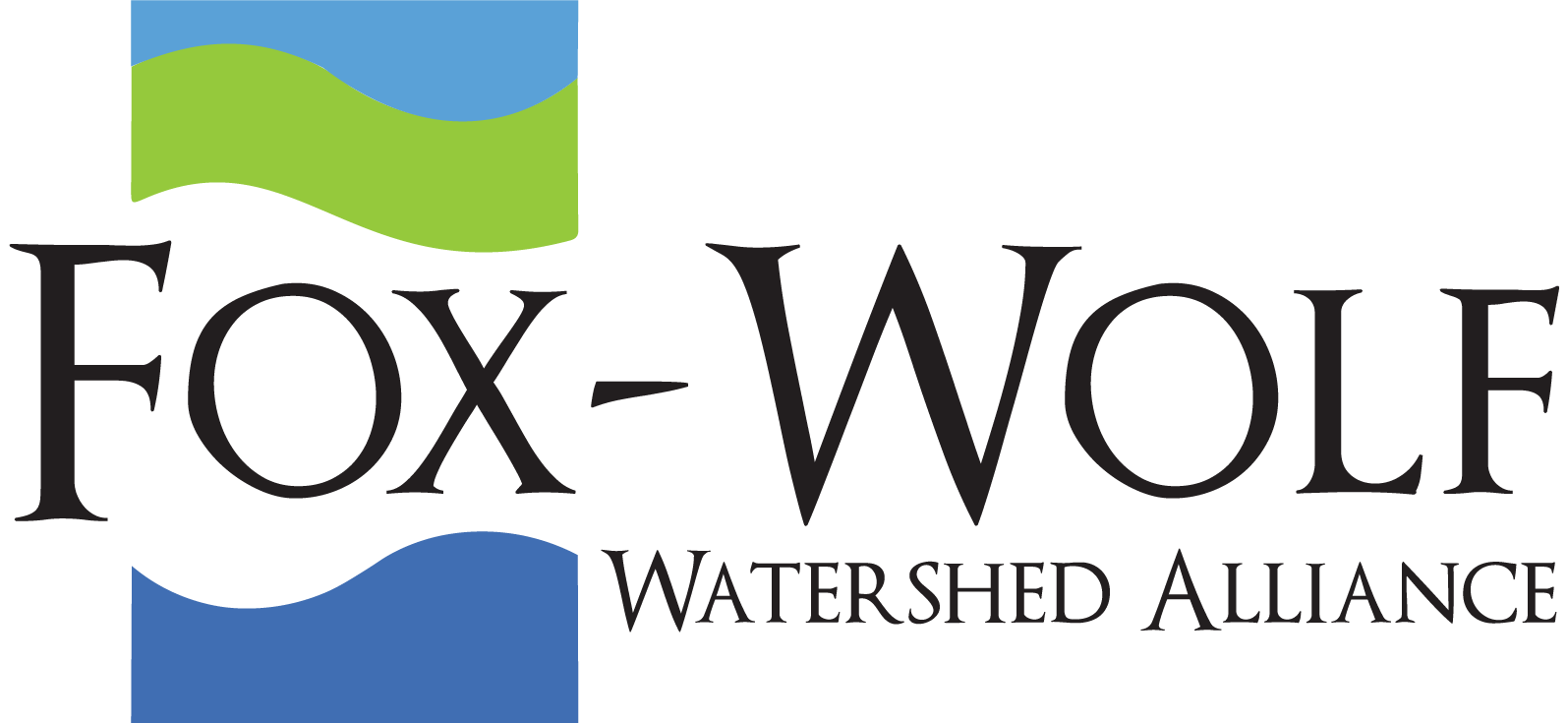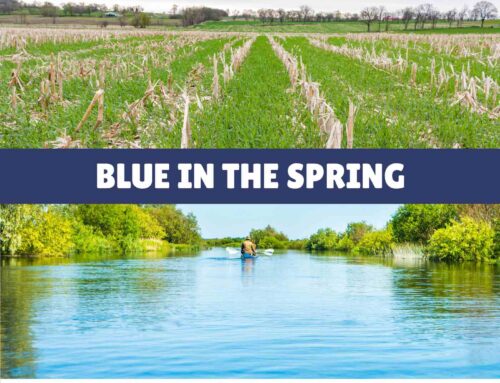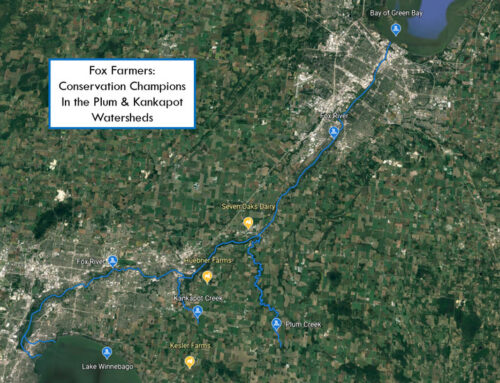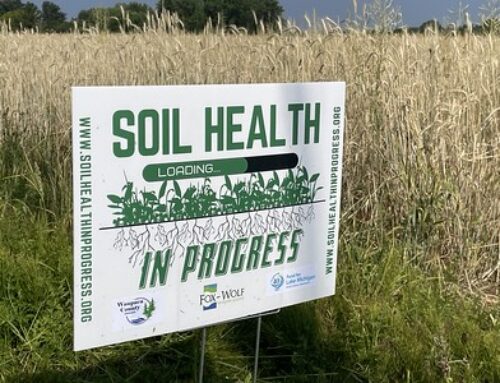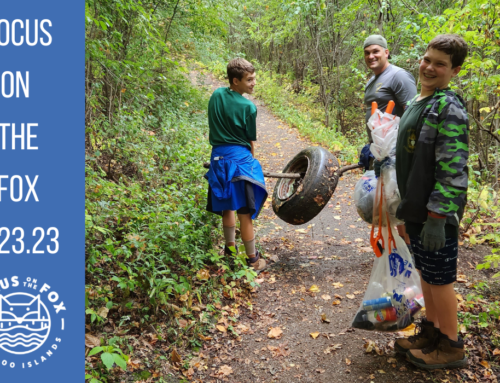Originally posted on 10.18.16 by Great Lakes Commission.
For immediate release: October 14, 2016
Ann Arbor, Mich. – The Great Lakes Commission (GLC) announced today that the first modern water quality trade between a crop farmer and a waste-water treatment facility in the U.S side of the Great Lakes basin was recently signed. The trade agreement, signed in the Fox River basin, near Green Bay, Wisconsin, was brokered by the GLC and is the culmination of a multi-year project known as Fox P Trade. During that time, the GLC worked with key stakeholders across the Lower Fox River watershed to test water quality trading as a potential tool to help reduce nutrient loadings into the Lower Fox River, which drains into Green Bay. Brown and Outagamie county land conservation departments partnered to connect the project with local farmers. Funding support was provided by the USDA Natural Resources Conservation Service through the Great Lakes Restoration Initiative.

Farmer Bob Van De Loo (left) and Bill Hafs of NEW Water (right) shake on the first water quality trade in the U.S. side of the Great Lakes basin.
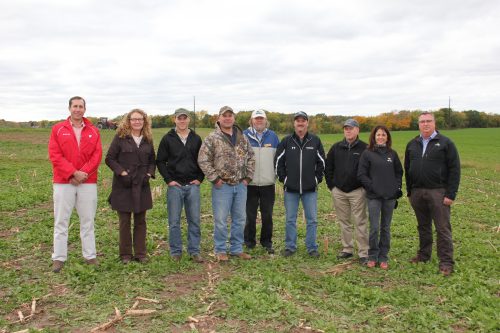
Representatives from the GLC, NEW Water, Fox-Wolf Watershed Alliance, WDNR, Outagamie County and NRCS gather to celebrate the trade.
Water quality trading is an innovative market-based approach to reducing pollution. Agricultural producers can be non-point sources of phosphorus into the Lower Fox and Green Bay, both of which suffer from multiple pollution problems, including excessive sediment as well as nutrients that cause harmful algal blooms. Reducing phosphorus use and associated runoff is largely a voluntarily action for farmers. Phosphorus also enters the watershed from industrial facilities and municipal wastewater treatment plants; however, most already have permits that limit how much pollution can be discharged into the water. When these permit holders face high costs to meet their permit limits, water quality trading can provide an opportunity for them to invest in potentially less expensive ways to reduce pollution entering the watershed.
# # #
